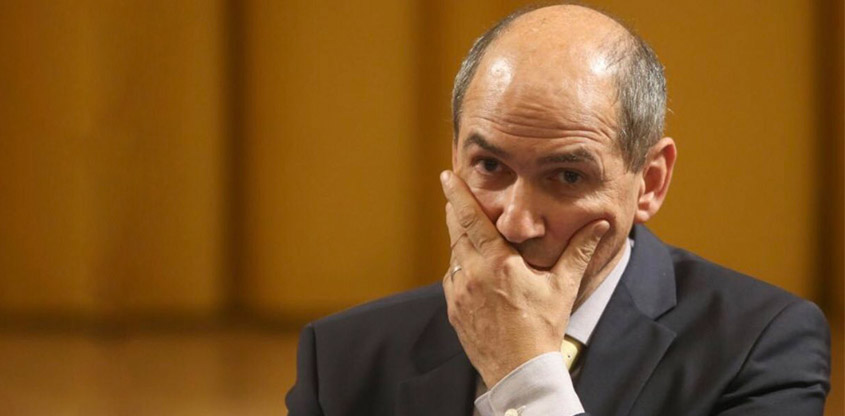
Slovenian Prime Minister Janez Janša may hold the rotating EU Council presidency, but he “does not represent” the EU in foreign policy, the bloc’s diplomatic chief Josep Borrell said Monday — a reaction to comments by Janša that sparked tensions with Iran.
Janša's speech triggered a strong reaction from Tehran, with a spokesperson for the Iranian foreign ministry condemning the remarks as “unacceptable, against diplomatic norms and spirit,” according to media reports.
The diplomatic dust-up highlights the EU’s growing struggles with the controversial Slovenian leader’s current prominent role within the bloc after Slovenia assumed the EU’s rotating presidency at the beginning of July. It also served as a reminder of the messaging confusion that comes with the EU’s multiple layers of leadership and representation, leaving it unclear at times who speaks for the entire bloc.
Asked about the tense back-and-forth at a press conference following an EU Foreign Affairs Council in Brussels on Monday, Borrell said that Iranian Foreign Minister Mohammad Javad Zarif had called him on Sunday to ask “if the declarations of the Slovenian prime minister represent the official position of the European Union, given that there had been a certain confusion related to the fact that Slovenia is currently the country holding the rotating presidency of the Council.”
The EU foreign policy representative said he told Zarif that “in our institutional setting, the position of a prime minister — even if he’s from the country that holds the rotating Council presidency — does not represent the position of the European Union.”
Borrell argued that only the president of the European Council, Charles Michel, could represent the EU at the level of heads of state and government.
He added: “Foreign policy remains a competency of [EU] member states and each member state can have the opinion that it sees fit for each issue of international politics. … For me it’s only up to say whether this position [by Janša] … represents the European Union. And certainly it does not.”
Borrell further said that the EU had “a balanced position” on Iran “that puts political pressure when it’s considered necessary, in many areas, and at the same time looks for cooperation when it is necessary.”
Several EU member states — with the EU’s backing — are currently trying to help resurrect the 2015 Iran nuclear deal, for instance.
“I have nothing to say about the opinions of the Slovenian Prime Minister,” Borrell said. “It’s his responsibility, but he does not represent the European Union.”
A spokesperson for the Slovenian representation to the EU said that “Slovenia has no intention whatsoever of getting involved in Iran’s internal affairs,” but added that the country “always advocates for human rights and fundamental freedoms. This is in line with our values and legislation.”
The spokesperson remarked that Borrell “has already made clear that the statements made [by Janša] had not been on behalf of the EU.”
